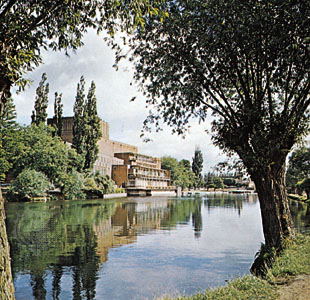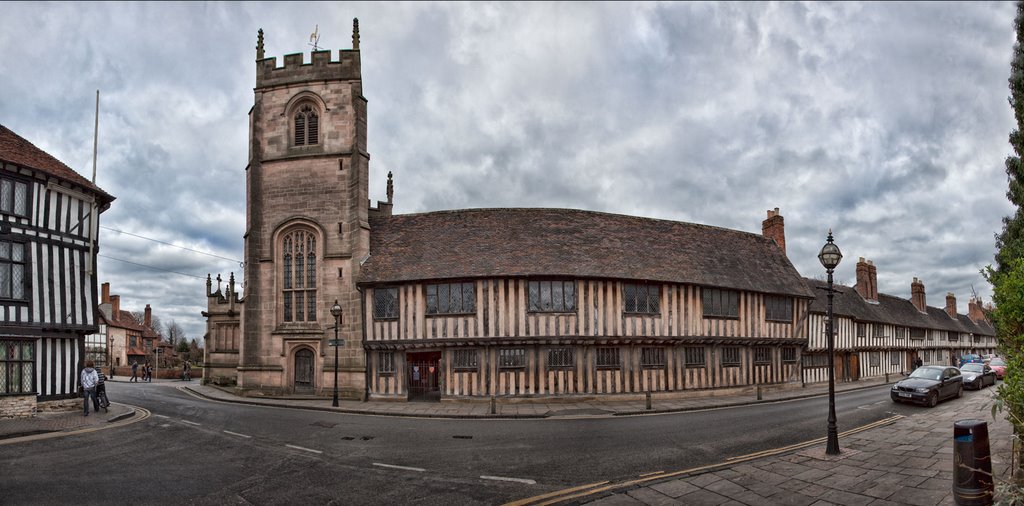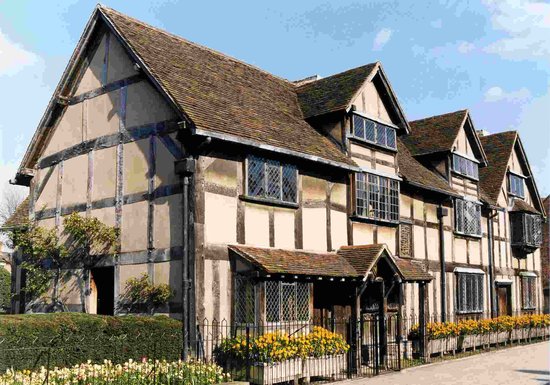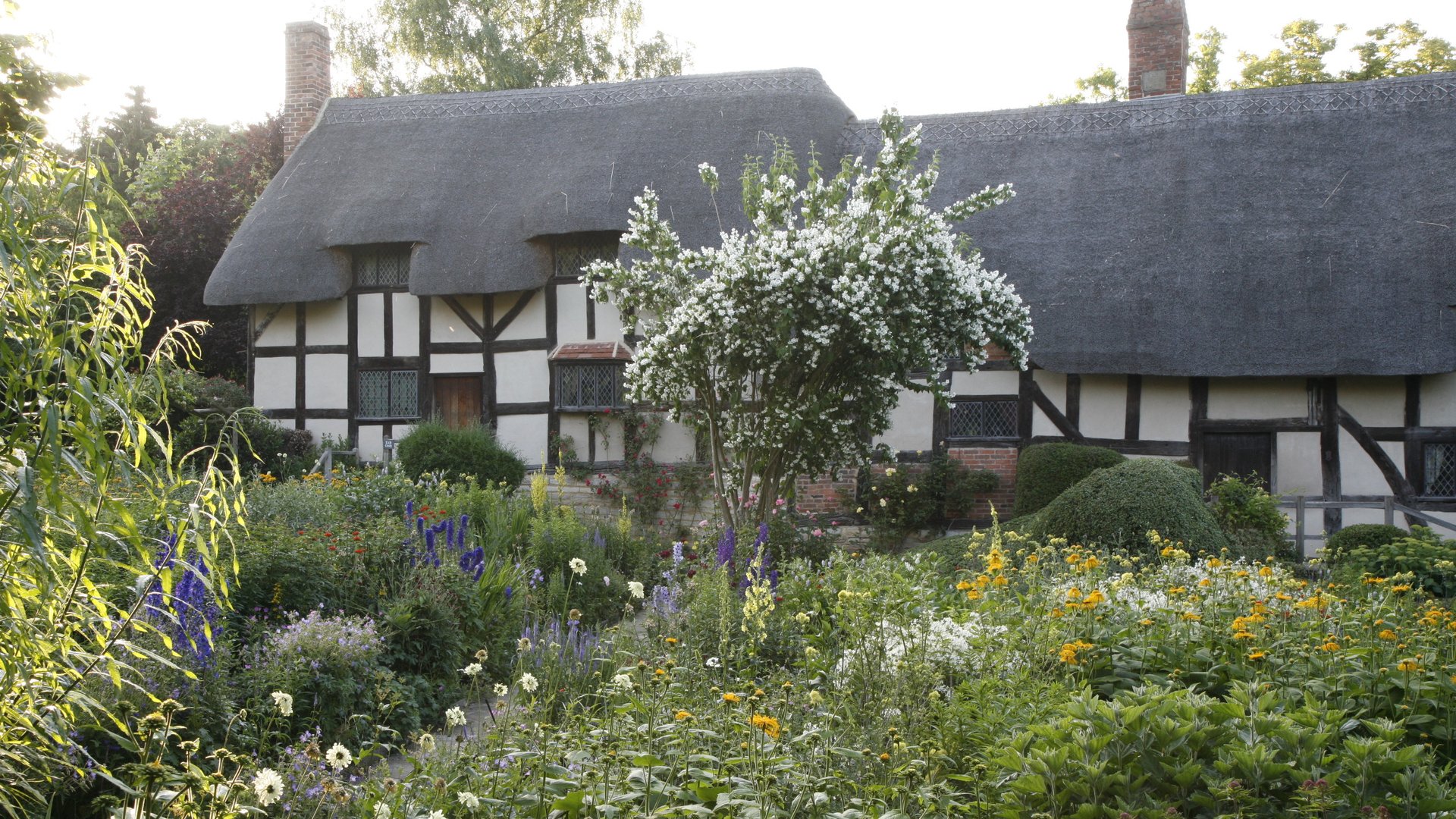Shakespeare
is estimated to have moved to London around 1588 - the
truth is, the span of time after his marriage and
before his first theatrical appearance is a mystery to
all. This period is known as his "Dark Years" by some
scholars. By 1592, we have evidence of his beginnings
as a playwright, poet, and actor in London. He was a
major part of the theatrical company the Lord
Chamberlain's Men, which in 1603, after the crowning
of King James I, changed its name to the King's Men.
With his plays being often produced, the King's Men
quickly rose to fame and had quite a successful life
in London (he also acted - word had it he liked to
play old men, and the people who have the last lines
in the play). They even had their own theatre,
The Globe,
which is still operational today (although it has been
reconstructed).
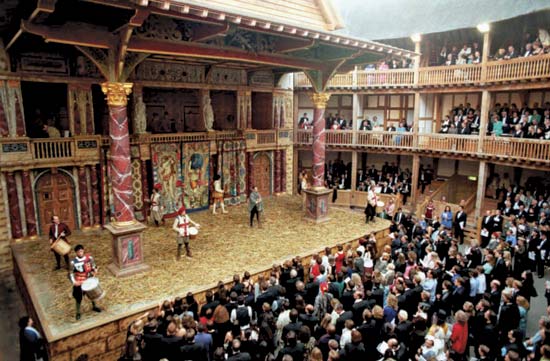
The Globe in a recent performance.
The next bit is to be expected -
Shakespeare became fabulously wealthy and famous. Some
people even had his portrait by their beds. He
developed a wonderful relationship with his go-to
actors, namely Richard Burbage (who was credited with
taking the first steps towards realism on the stage,
and was surely the first Hamlet in 1601), and
together, they all had long and prosperous careers. He
seemed so slow down in the 1600s, and his four last
plays were all written in that stretch - the Romances.
However, he wasn't considered 'the greatest' by any
means - people of the time had different opinions on
who their favorite playwright was. It seems that the
title of the best can only be awarded posthumously.
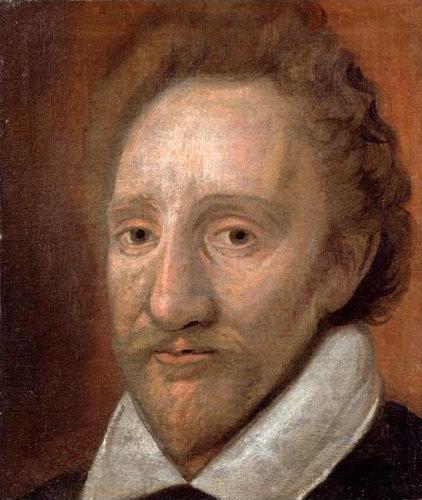
Richard Burbage, in his old age.
In his later
years, after his last play (The Tempest) in 1611,
Shakespeare spent more time back home in Stratford
with his family. Shakespeare is supposed to have
died on his birthday, April 23rd, in the year
1616. We don't know if this is true or not - all
we know is that he was buried in the Trinity
Church at Stratford on April 25th. He left the
vast majority of his belongings to his eldest
daughter Susanna. Not much went to his
still-living wife, Anne, who he referred to as his
"Second-best Bed." It is through this and his
sonnets that we can infer that the couple grew
discontent - perhaps because Will met someone
else. This mystery woman is the subject of many of
his later sonnets, a lot of which become quite
dark and depressing. On his grave is an epitaph
which he, of course, wrote himself. Thousands of
people make the pilgrimage to Stratford every year
to partake in the exquisite theatre of the Royal
Shakespeare Company, who are based there, and to
see the places where Shakespeare grew up and visit
his grave.
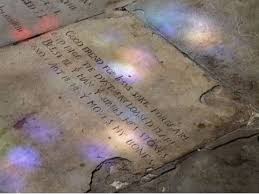
Shakespeare's grave. The inscription reads:
"Good Friend, for Jesus' sake forbear,
To dig the dust enclosed in here.
Blessed be the man that spares these stones,
And cursed be he that moves my bones."
